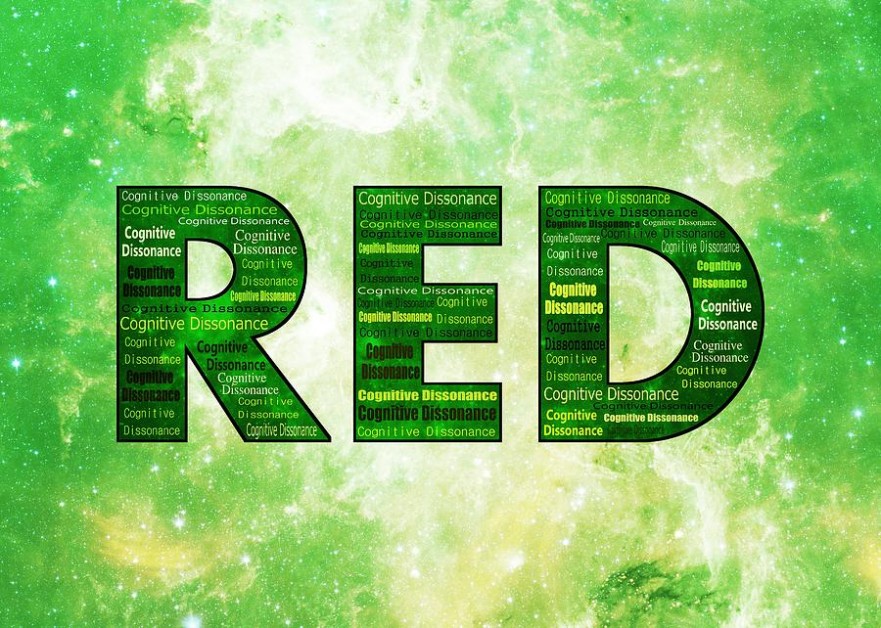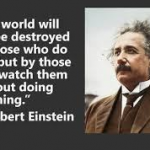If a tree falls in a forest and no one is there to hear it, does the tree make a sound? According to George Berkley 1750, who I studied in philosophy 101 at NAU, neither the tree nor the forest exist without perception. Which lends the question, how do I acknowledge the existence of anything without direct perception or observation of that object or phenomena? Does that mean perception is reality? In today’s current climate I would almost have to agree that the existential information bubble is in fact becoming the reality of many Americans. People are choosing to use their own perceptions to form the basis for their reality. Think about how many times you have heard friends or colleagues say to you something like, “Oh this is my belief regardless of what everyone else says.” I still have friends who do or won’t do this or that and when asked why they respond with, “Because they just don’t believe in that.” As a science major, I’m like really??? That’s your proof?? I personally don’t do anything unless I have 3 credible sources with data and evidence… But then again, I guess I’m a nerd like that.
With the rise of instant access to mass quantities of information at our fingertips, we are seeing people take sides because that is what we do as Americans. We take sides. Whether or not we are cheering for a sports team or a political figure; we love to be on a team. And since I can choose the media outlet I wish to acknowledge as my truth, my information bubble becomes almost as gravitationally powerful as a black hole itself. You can in essence be walled off digitally from all outside thought and never cross your event horizon. Not to dissimilar from our beloved characters in Orwell’s book 1984. But is that healthy?? Is this what we want for our kids?
As a science teacher, I fight a battle every year with students in my class. That is, I must break them of what they believe they already know to be their individual truth. I then must show them through observation, evidence, and data that what they thought was truth is actually in many cases dead wrong. Like Yoda I must steer my young Padawan’s to unlearn what they have learned, so that they can know the real power of physics. It’s like when I teach that all objects fall at 9.8 m/s² on earth regardless of the mass. I can drop two different balls similar in size but very different in mass of the balcony at PHS dozens of times and show that they hit at the same rate, yet my kids on the test will always say the heavier ball will hit first.
From my time in the classroom I have learned that these preconceived notions of how nature works are getting harder and harder to disprove to students. That is because they, like many of my fellow Americans, suffer from Cognitive Dissonance.
The term cognitive dissonance is used to describe the feelings of discomfort that result from holding two conflicting beliefs. When there is a discrepancy between beliefs and behaviors, something must change in order to eliminate or reduce the dissonance. People tend to seek consistency in their beliefs and perceptions. So, what happens when one of our beliefs conflicts with another previously held belief? The results are tumultuous.
So how do you teach topics to students you know cannot -and will not -believe you because of their cognitive dissonance?
The problem of teaching to the truth is only going to grow in years to come for teachers of all disciplines. I mean information in recent elections was found to be fraudulent (i.e. no proof or evidence). If our election was run more like a science dissertation, each candidate would have been smacked back to the laboratory for false data in the first ten mins of their defense. Yet regardless, someone still got elected and the other team is still angry. But that’s a different article.
Ten years ago, I never would have dreamed at waking up to headlines that talk of too much false news in the media, or that informational media outlets like Facebook are having to filter widespread lies on the internet. Now imagine being the kid who is just waking up their reality. How do we teach our youth that we know more than their cellular device and to put more faith in science and real people than their informational super bubble?
My fellow teachers and I have a tough road ahead. The issue is one I think that warrants further study, especially moving forward in our new world. For now, I am going to keep forcing my kids to show me the data and defend their results with vigor and swag.










Comments 6
Yes; and what about global climate change? The evidence is conclusive. A 7th grader can graph average global temperatures over 50 years and see that, yes, the planet is getting hotter. However, simple scientific observations such as these are now questionable, because someone in Mom and Dad’s circle says it is not true.
This is a great piece. Kids, and adults alike, now seek their news from outlets that are like minded. To compound the issue news media picks up on stories that sometimes later prove to be false. The days of true reporting, looking for the facts, are quickly fading. As true news decipates and finding your “type” of news increases students are less likely to think critically, question, and weigh their options. This is why we must work to integrate critical thinking in our classrooms. I am glad there are champions, like you, who insure this happens.
A new research report is relevant for ALL K-16 classes! … a Stanford University study of 7,804 students from middle school through college, on how they evaluate information they find online. I quote it: “Overall, young people’s ability to reason about the information on the Internet can be summed up in one word: bleak.” Freely download it at
http://sheg.stanford.edu/upload/V3LessonPlans/Executive%20Summary%2011.21.16.pdf
I am totally on board with your observations. For me, the most cognitively dissonant part of the whole picture is that I always understood cognitive dissonance to mean that feeling you get when the two worlds collide: What you thought and what you are now learning/observing. What scares me is that by this definition, I feel like more and more, people are simply immune to the dissonance. it’s like, the new facts don’t even get enough play to create the dissonance needed for critical thinking an fresh thought or exchange of ideas.
Perhaps we have sold out on truly educating the imagination enough to entertain new ideas. The “What If” game. Perhaps now, the “what if” games are becoming more and more limited to cheap thrills like video games and YouTube videos about household hacks. When I say “we,” I don’t mean teachers. I mean, as a culture. And our digital bubbles only make it worse. And the lack of cognitive dissonance is what makes them steel. I can’t think about it anymore. I’m going to go check my FB feed and feel better.
PS: Love the graphic.
This is quite the snapshot of what is happening outside of the classroom and how it is impacting what is happening in the classroom. Back when I was a kid, we called things like these rumors and usually a wise adult somewhere asked you to prove your claim. I am afraid of what is being perpetuated and I appreciate your call to action. We all need to remember to model the kind of society we want to be a part of.